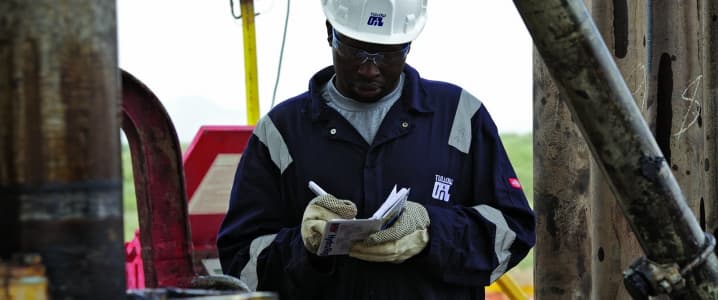In the first quarter of 2017 the value of Gabon’s oil exports rose by 70.9 percent year-on-year to reach $51.30 (€42.90) per barrel compared to $30 (€25.10) per barrel in early 2016. Since then, prices have remained at around $50 (€41.80).
As a result, the value of oil exports totaled CFA559bn (€851.6m) in the first quarter of 2017, representing a year-on-year increase of 80.3 percent. China accounted for around half of all exports, followed by Malaysia, at 17 percent, and Australia (13 percent). Fiscal revenues from oil, including taxes and royalties, also increased by 47 percent in the first quarter.
Better pricing makes for improved fiscal balance
The rebound has been welcomed in Gabon, where oil is still central to ensuring a strong fiscal position and a balanced budget. In 2015 oil accounted for roughly 70 percent of the country’s export revenues and contributed around 40 percent to the state treasury.
However, as a result of the drop in global energy prices in 2014, oil revenues declined by 57 percent over the following two years, from CFA1trn (€1.5bn) in 2014 to CFA603.3bn (€919.1m) in 2015 and CFA423.1bn (€644.6m) in 2016, according to the General Directorate of the Economy and Fiscal Policy (Direction Générale de l’Economie et de la Politique Fiscale, DGEPF). As a result, crude oil’s contribution to the country’s GDP comprised 18.8 percent in 2016, compared to 22.8 percent in 2015 and 26.2 percent in 2014.
Output declines by 7 percent
With current energy prices holding steady, Gabon can expect its income from oil to almost double this year compared to 2016, which should provide a welcome respite for the government’s coffers. Related: Can OPEC Control The Oil Bulls?
Crucially, this comes in spite of a number of both domestic and external developments that have slowed production and export volumes.
As a result of a planned production cut of 9000 barrels per day (bpd) as part of OPEC’s global reduction, effective from January 1, 2017, oil production declined by 7 percent to 2.7bn tonnes in the first quarter of the year. This led to a decrease in exports of 16.2 percent, according to the DGEPF. Domestic natural gas production also declined by 0.9 percent during the period to 135.1bn cu metres.
Lower output by upstream operators in general also contributed to the decline. Gabon’s oil production has naturally been dropping off since 2012. Overall, domestic output fell from 253,000 bpd in 2012 to 227,000 bpd in 2016, according to the BP “Statistical Review of World Energy 2017.”
Shell and Total divest assets as part of regional strategy change
The maturing of some of the country’s major oil fields, coupled with volatile energy prices, has led two of Gabon’s oldest and biggest oil operators – French multinational Total and Royal Dutch Shell – to sell off some of their assets as part of a broader regional strategy.
At the end of February 2017 Total sold about one-fourth of its Gabon assets for $350m (€292.4m) to Anglo-French oil and gas company Perenco, which has been present in the country since 1992. The move is intended to restructure Total’s domestic offshore operations.
The following month Royal Dutch Shell sold its onshore assets in Gabon to Carlyle Group’s Assala Energy for $587m (€490.5m). The deal included five operated fields, participation interest in four non-operated fields, the associated infrastructure of the onshore pipeline system from Rabi to Gamba and the Gamba Southern export terminal. The company’s decision is part of a larger global portfolio restructuring, targeting a total disinvestment of $30bn (€25.1bn) between 2016 and 2018.
Both Total and Royal Dutch Shell have been in Gabon for the better part of the 20th century, entering the market in 1928 and 1960, respectively. Despite these exits, Total will remain Gabon’s second-largest oil producer with a share of about 45,000 bpd, while Shell has held on to exploration licences for two offshore deepwater blocks.
Increasing cooperation with OPEC
To address the wider issue of production decline in Gabon, in August Pascal Houangni Ambouroué, minister of petroleum and hydrocarbons, and Mohammad Barkindo, secretary-general of OPEC, held a meeting to discuss increasing cooperation to boost the country’s oil production.
Gabon rejoined OPEC at the beginning of July 2016 after an absence of more than two decades. The country sought enhanced coordination with other global oil producers to alleviate pressure created by low global energy prices and to create an environment more conducive to expanding domestic production.
More Top Reads From Oilprice.com:
- Stocks To Watch When WTI Rallies
- Traders Are Betting On $100 Oil In 2018
- Oil Markets React Stoically To Rising Oil Rig Count


















